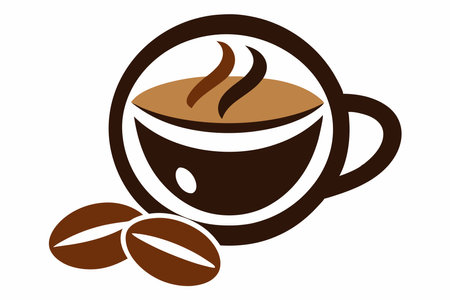1. Understanding Caffeine: What Sets Regular and Decaf Apart
When it comes to your morning cup of joe, one of the biggest differences between regular and decaf coffee is the caffeine content. But there’s more to it than just energy levels. Let’s break down what sets them apart in terms of caffeine, how they’re made, and why that matters for your energy, focus, and mood.
Caffeine Content: The Core Difference
The main reason people choose regular or decaf coffee usually comes down to caffeine. Caffeine is a natural stimulant that affects your central nervous system — it helps you feel more awake, alert, and sometimes even boosts your mood. Here’s a simple comparison:
| Coffee Type | Average Caffeine per 8 oz Cup |
|---|---|
| Regular Coffee | 95–120 mg |
| Decaf Coffee | 2–5 mg |
As you can see, decaf isn’t completely caffeine-free, but it has significantly less caffeine than regular coffee — about 97% less.
How Theyre Made: Processing Matters
The way each type of coffee is processed also plays a big role in their differences. All coffee starts with green coffee beans, but before those beans are roasted, decaf coffee goes through an extra step to remove most of the caffeine.
Common Decaffeination Methods:
- Swiss Water Process: Uses water and osmosis without chemicals to remove caffeine — popular among organic brands.
- CO₂ Method: Uses carbon dioxide under pressure to extract caffeine — efficient and chemical-free.
- Solvent-Based Methods: Use substances like ethyl acetate or methylene chloride to pull out the caffeine — widely used but regulated for safety.
Regular coffee skips this step entirely, going straight from bean to roast. This means regular beans retain all their natural caffeine content and flavor compounds, while decaf may lose some along the way depending on the process used.
Flavor and Body: Does Decaf Taste Different?
You might have heard that decaf tastes “weaker” or “flat.” That can be true in some cases because certain decaffeination methods remove not only caffeine but also some of the oils and flavors that give coffee its richness. However, with modern techniques — especially methods like Swiss Water — many high-quality decafs taste pretty close to their regular counterparts.
Quick Tip:
If youre sensitive to caffeine but still love the ritual and taste of coffee, look for decaf options labeled “single-origin” or “specialty grade” for better flavor quality.
Understanding these basics helps explain why regular coffee tends to give you that quick jolt of energy and focus, while decaf offers a gentler experience — perfect for late afternoons or people who are cutting back on stimulants.
2. Energy Boost: How Caffeine Drives Alertness and Activity
If youve ever reached for a cup of coffee to shake off morning grogginess or power through an afternoon slump, youre not alone. Regular coffee is known for its energizing effects, thanks to one key ingredient: caffeine. But how exactly does caffeine give you that boost? And what happens when you opt for decaf instead?
How Caffeine Works in Your Body
Caffeine is a natural stimulant that works mainly on your central nervous system. When you drink regular coffee, the caffeine blocks a neurotransmitter called adenosine, which is responsible for making you feel tired. With adenosine out of the way, other chemicals like dopamine and norepinephrine increase, leading to heightened alertness, quicker reaction times, and improved focus.
The Science in Simple Terms:
| Action | Effect on Body |
|---|---|
| Blocks adenosine | Reduces feelings of drowsiness |
| Increases dopamine | Boosts mood and motivation |
| Stimulates CNS (central nervous system) | Improves focus and alertness |
Regular vs. Decaf: Energy Differences
While both regular and decaf coffee come from the same beans, their caffeine content makes a big difference when it comes to energy. Regular coffee usually contains around 95 mg of caffeine per 8-ounce cup, while decaf typically has just 2 to 5 mg. That means decaf drinkers wont get the same noticeable energy lift that regular coffee lovers experience.
Caffeine Comparison:
| Type of Coffee | Average Caffeine (per 8 oz) | Energy Effect |
|---|---|---|
| Regular Coffee | 95 mg | Strong energy boost and mental alertness |
| Decaf Coffee | 2–5 mg | Mild or no noticeable energy change |
What Decaf Drinkers Might Notice Instead
Even though decaf doesnt deliver the same jolt of energy, it still offers some comforting perks. The warm ritual of drinking coffee can help people feel more awake simply by association. Plus, many enjoy decaf later in the day when they want the taste without risking sleep disruption.
A Quick Tip:
If youre sensitive to caffeine but still want a slight pick-me-up, try mixing half regular and half decaf—what many call a “half-caff.” It gives you a gentle energy bump without overdoing it.
Coffee isnt just about flavor; its also about how it makes us feel. Whether youre sipping regular for an energy surge or choosing decaf for a calmer experience, understanding how caffeine works helps you make smarter choices throughout your day.

3. Mental Clarity: Coffees Role in Focus and Productivity
When it comes to staying sharp and getting things done, coffee is often the go-to beverage for millions of Americans. But how exactly does it help your brain focus? And what about decaf—does it offer any of the same mental perks?
How Caffeine Boosts Brain Function
Caffeine, found in regular coffee, works by blocking a neurotransmitter called adenosine. This chemical naturally builds up in your brain throughout the day, making you feel tired. By blocking adenosine, caffeine helps you feel more alert and awake.
On top of that, caffeine increases levels of dopamine and norepinephrine—brain chemicals linked to mood, attention, and motivation. The result? A quicker reaction time, better concentration, and improved task performance.
Regular Coffee vs. Decaf: Brain Boost Breakdown
Let’s take a look at how regular and decaf coffee compare when it comes to boosting mental clarity:
| Effect | Regular Coffee | Decaf Coffee |
|---|---|---|
| Alertness | High (due to caffeine) | Mild (very low caffeine content) |
| Attention Span | Improved for short-term tasks | Slight improvement (mostly psychological) |
| Reaction Time | Faster response times | No significant change |
| Mental Fatigue Reduction | Significant decrease | Minimal effect |
Can Decaf Still Help You Focus?
Even though decaf contains only trace amounts of caffeine (usually around 2-5 mg per cup), some people still report feeling more focused after drinking it. This could be due to the familiar ritual of sipping coffee or simply taking a break during a busy day.
The Power of Routine
Sometimes its not just whats in the cup that matters—it’s the habit itself. Taking a moment to drink coffee can serve as a mental reset, helping you return to work with a clearer mind. So even if decaf doesnt give you the same chemical kick as regular coffee, it might still support your productivity in other ways.
The Bottom Line on Focus and Coffee Type
If youre looking for a quick boost in focus and performance, regular coffee is your best bet thanks to its caffeine content. However, if youre sensitive to caffeine or just want to cut back while keeping your routine intact, decaf can still play a small but meaningful role in maintaining mental clarity.
4. Mood and Emotions: Coffee as a Pick-Me-Up
Ever notice how that first sip of coffee can instantly lift your spirits? Its not just in your head—there’s real science behind why coffee makes us feel good. Whether youre sipping on a regular cup or going for decaf, the connection between coffee and mood is more than just habit.
How Caffeine Affects Your Brain
Caffeine, the active ingredient in regular coffee, plays a big role in how you feel after drinking it. It works by blocking adenosine, a neurotransmitter that makes you feel sleepy. At the same time, caffeine boosts the release of dopamine and serotonin—your brain’s natural “feel-good” chemicals.
Caffeine and Mood-Boosting Neurotransmitters
| Neurotransmitter | Effect of Caffeine | Mood Impact |
|---|---|---|
| Dopamine | Increases availability | Improves motivation and pleasure |
| Serotonin | Mild boost in levels | Promotes calmness and happiness |
| Adenosine (blocked) | Lowers drowsiness signals | Makes you feel more alert and upbeat |
The Feel-Good Factor of Decaf
You might be wondering—if caffeine is the main mood booster, does decaf still help with emotions? Surprisingly, yes! While decaf contains much less caffeine, it still has small amounts—usually about 2 to 5 milligrams per cup. That tiny dose might not give you a jolt, but it can still have a mild uplifting effect for some people.
Plus, decaf coffee retains many of the same antioxidants and plant compounds as regular coffee. These compounds may support overall brain health, which contributes to emotional well-being over time.
Mood Comparison: Regular vs Decaf Coffee
| Regular Coffee | Decaf Coffee | |
|---|---|---|
| Caffeine Content (per cup) | 80–100 mg | 2–5 mg |
| Mood Boost (Short-Term) | High — due to dopamine & serotonin activation | Mild — slight effect from low caffeine & ritual comfort |
| Mood Support (Long-Term) | Positive — if consumed in moderation | Slightly positive — thanks to antioxidants |
Coffee Rituals Matter Too
The emotional benefits of coffee arent just chemical—theyre also psychological. The daily ritual of brewing or ordering your favorite cup can offer comfort and routine, which are known to improve mood and reduce stress. Whether it’s a morning latte or an afternoon decaf break, that moment of pause adds something special to your day.
The Bottom Line on Mood Benefits
If youre looking for a quick emotional lift, regular coffee is more likely to do the trick thanks to its higher caffeine content. But don’t count out decaf—it offers subtle benefits through antioxidants and the comforting ritual of coffee itself. Either way, your daily cup can be more than just a drink—it’s a little boost for your mood.
5. Choosing Your Brew: Lifestyle, Health, and Personal Preferences
When it comes to choosing between regular and decaf coffee, there’s no one-size-fits-all answer. The right brew for you depends on your lifestyle, health considerations, and how your body responds to caffeine. Whether youre looking for an energy boost or just love the taste of coffee without the buzz, understanding how each option affects energy, focus, and mood can help you make a better choice.
Energy Needs and Daily Routine
If you rely on that morning cup to wake up or power through a long day, regular coffee might be your go-to. It contains caffeine that can improve alertness and reduce fatigue. On the other hand, if youre already energized or its later in the day, decaf lets you enjoy the flavor of coffee without disrupting your sleep cycle.
Quick Guide Based on Daily Demands:
| Lifestyle | Recommended Coffee Type | Why? |
|---|---|---|
| Busy mornings or night shifts | Regular Coffee | Boosts alertness and helps stay focused during demanding hours |
| Relaxing evenings or weekends | Decaf Coffee | Avoids caffeine-related sleep disruption while enjoying the flavor |
| Work-from-home with flexible schedule | Mix of Both | Use regular in the morning and decaf in the afternoon to balance energy levels |
Caffeine Sensitivity and Health Considerations
Caffeine affects everyone differently. Some people feel jittery after just one cup, while others can drink several without any issues. If you experience anxiety, high blood pressure, or digestive problems from caffeine, switching to decaf may be a smart move. Likewise, pregnant individuals or those with heart conditions are often advised to limit caffeine intake.
Health-Based Recommendations:
| Health Factor | Suggested Option | Reason |
|---|---|---|
| Caffeine sensitivity (jitteriness, anxiety) | Decaf Coffee | Lowers risk of overstimulation while still enjoying coffees taste and comfort |
| High blood pressure or heart concerns | Decaf Coffee (check with doctor) | Avoids potential spikes in heart rate caused by caffeine |
| No health issues + needs mental focus for work/study | Regular Coffee | Caffeine can enhance concentration and cognitive performance short-term |
Taste Preference and Social Habits
Some people prefer the bold taste of regular coffee, while others enjoy lighter blends or flavored decafs. If your goal is simply to savor a warm cup during a catch-up with friends or while reading a book at night, decaf is often the better fit. It allows you to indulge without worrying about staying up all night.
The Bottom Line:
Your perfect cup depends on what your body needs and what your day looks like. For energy and focus, regular coffee delivers results. For mood support without the buzz—or if youre sensitive to caffeine—decaf keeps things mellow. You don’t have to choose just one; many people find that alternating between both based on their schedule works best.

